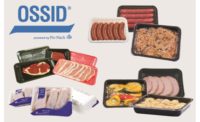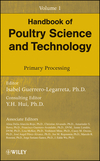CMS Beefs Up Case-Ready Packaging Operations
CMS Beefs Up Case-Ready Packaging Operations
by Kate Bertrand
Extended shelf life products meet needs of retailers and consumers alike.
Wichita, Kan.-based Cargill Meat Solutions (CMS) Corp. is no stranger to the intricacies of processing and marketing meat. Formerly known as Excel Corp., the company is the second largest meat processor in the United States.
To maintain its competitive success, CMS uses packaging technology to meet the changing needs of meat retailers and consumers. The company’s Dodge City, Kan., plant is at the forefront of that packaging innovation.
The plant last year invested $2 million to build a 50,000-square foot addition for a line dedicated to packaging ground beef patties in case-ready, extended shelf life trays. Built in just four months, the addition began operating last June.
Extending shelf life
The Dodge City plant uses CMS’ proprietary, patent-pending REDiFresh® technology to provide extended shelf life in case-ready ground beef patties. This line of products includes several grades, including ground chuck, sirloin, round and lean beef.
The REDiFresh modified atmosphere packaging process reportedly safeguards the meat’s flavor, texture and fresh red color for a shelf life of 21 days. The packaging also is leak-proof, which retail employees and consumers both appreciate.
REDiFresh is basically a low-oxygen packaging format. It keeps the meat and poultry looking and smelling fresh during the product’s natural shelf life. It is the same effect as vacuum-packaged meat, where all the air, including all oxygen, is removed from the package.
The emphasis on extended shelf life products illustrates the company’s deep understanding of its retail customers’ needs.
Longer shelf life products give retailers more leeway in managing inventory and help them boost profitability.
Dan Schnitker, CMS vice president and general manager of the Dodge City plant, says, “The REDiFresh case-ready patty program provides an opportunity for our retailer customers to grow their business by enabling them to offer ground beef patties without adding labor or shrink to their in-store operations.”
Retailers gain shipping efficiencies, as well, because the plant can ship REDiFresh products together with fresh boxed beef straight from the plant’s slaughtering facility. Further, the plant provides just-in-time delivery to retailers; they receive their orders exactly when they expect inventory levels to dip.
Extended shelf life benefits consumers, too, by transforming ground beef into a refrigerator staple. Consumers can reduce how often they shop and feel confident the product will keep in the unopened package far longer than it would in conventional packaging.
Meaty packaging operations
Additional lines in the main part of the plant pack variety meats in case-ready, vacuum-packed pouches using a Multivac system. In total, the plant packages 750,000 pounds of case-ready meat each week.
In addition to its case-ready program, the plant fills ground beef into retail-size and bulk chubs. It also vacuum packages trim, bone-in and deboned meat in Cryovac bags from Sealed Air Corp. These “boxed beef” products receive additional processing at other CMS facilities or at the retailer.
Case-ready meat has enjoyed steady growth of popularity among retailers, for whom it reduces labor costs. Thanks to the pre-priced packaging, the meat requires no further weighing, wrapping or other handling after it reaches the store.
Case-ready packaging appeals to consumers, too, because of its clean, consistent appearance at point-of-purchase.
“Our retail customers are looking for ways to differentiate themselves from the competition and manage their costs, as well,” Schnitker says. “Case-ready products enable them to manage their labor and better meet the consumer’s demand.”
Kate Bertrand is a freelance writer based in the San Francisco, Calif., area, who specializes in packaging, business and technology. Her e-mail address is kate.bertrand@sbcglobal.net.
Looking for a reprint of this article?
From high-res PDFs to custom plaques, order your copy today!






